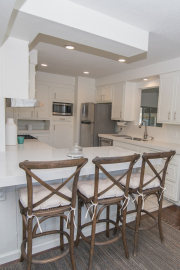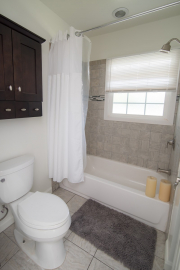Benzodiazepine Addiction Treatment
Benzodiazepine addiction treatment is a comprehensive process that addresses both the physical dependence on the drug and the underlying psychological factors contributing to the addiction.
It typically begins with a medically supervised detoxification to safely manage withdrawal symptoms, followed by a structured residential treatment program that offers intensive therapy and support. After completing these initial phases, aftercare becomes a crucial component, providing ongoing support to help maintain long-term sobriety.
This journey from detox to aftercare is designed to equip individuals with the tools and strategies needed to overcome addiction and rebuild a healthy, fulfilling life.
Detox
Benzo Detox, the initial phase in benzodiazepine addiction treatment, involves safely eliminating the drug from the body under medical supervision.
This process is crucial as it manages the potentially severe withdrawal symptoms that can occur when stopping benzodiazepine use. Symptoms can range from mild anxiety to more serious conditions like seizures, making medical oversight essential. During detox, healthcare professionals may administer medications to ease withdrawal symptoms and ensure patient safety.
This stage sets the foundation for recovery, preparing individuals for the next steps in their treatment journey.
Residential Treatment
Following detox, residential treatment provides a structured and supportive environment where individuals can focus on their recovery.
This phase involves living in a treatment facility, typically for 30 to 90 days, where patients engage in various therapies such as individual counseling, group therapy, and cognitive-behavioral therapy. These therapies are designed to address the root causes of addiction, develop coping mechanisms, and foster personal growth.
The immersive nature of residential treatment allows for a deeper exploration of the issues surrounding addiction, offering a space for healing and learning in a community of peers.
Aftercare
Aftercare is a critical component of benzodiazepine addiction treatment, supporting individuals as they transition back into their daily lives.
This phase typically involves ongoing therapy, participation in support groups like Narcotics Anonymous or SMART Recovery, and possibly outpatient treatment. Aftercare provides a safety net, helping to prevent relapse by offering continued emotional support and guidance. It’s an opportunity to reinforce the skills learned during treatment and to stay connected with the recovery community.
Effective aftercare plans are personalized, addressing the unique needs and challenges of each individual in their ongoing journey of recovery.
































